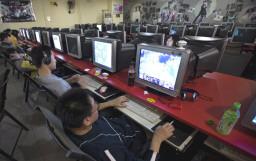An Italian-led team has made an important advance on the way to developing a computer based on quantum mechanics.
The new research, made by the S3 laboratory of the National Institute for the Physics of Matter and Basel University, aims to use tiny magnetic fields to control a computer's basic information unit, the bit.
''The research is based on a new class of systems called nanomagnets,'' S3 lab chief Elisa Molinari said.
''The result is new and important because now we can control the evolution of time. This possibility makes these devices, which measure billionths of a metre, excellent candidates for building the quantum bits of the computers of the future''.
The Italian side of the project was led by a young researcher, Filippo Troiani, who like hundreds of others in Italy does not have a full-time post.
''Filippo leads pioneering research, working with top people around the world. We're proud of that and we hope to be able to offer him and so many of his colleagues a way to stay with us,'' Molinari said.
Italian Education Minister Mariastella Gelmini recently unveiled plans to reverse a growing brain drain to foreign universities.
Troiani's research paper, co-authored by Basel University's Daniel Loss, appears in the latest edition of the Physical Review Letters.
Troiani is one of many researchers competing on an international level to be the first to make a quantum bit.
The ability to produce a quantum computer is still some years ahead in the future, experts say.
When it is achieved, they say, it will revolutionise the computer industry.
Quantum mechanical computation will be able to quickly solve certain complicated calculations that on an ordinary computer would take more than the lifetime of the universe to calculate.









